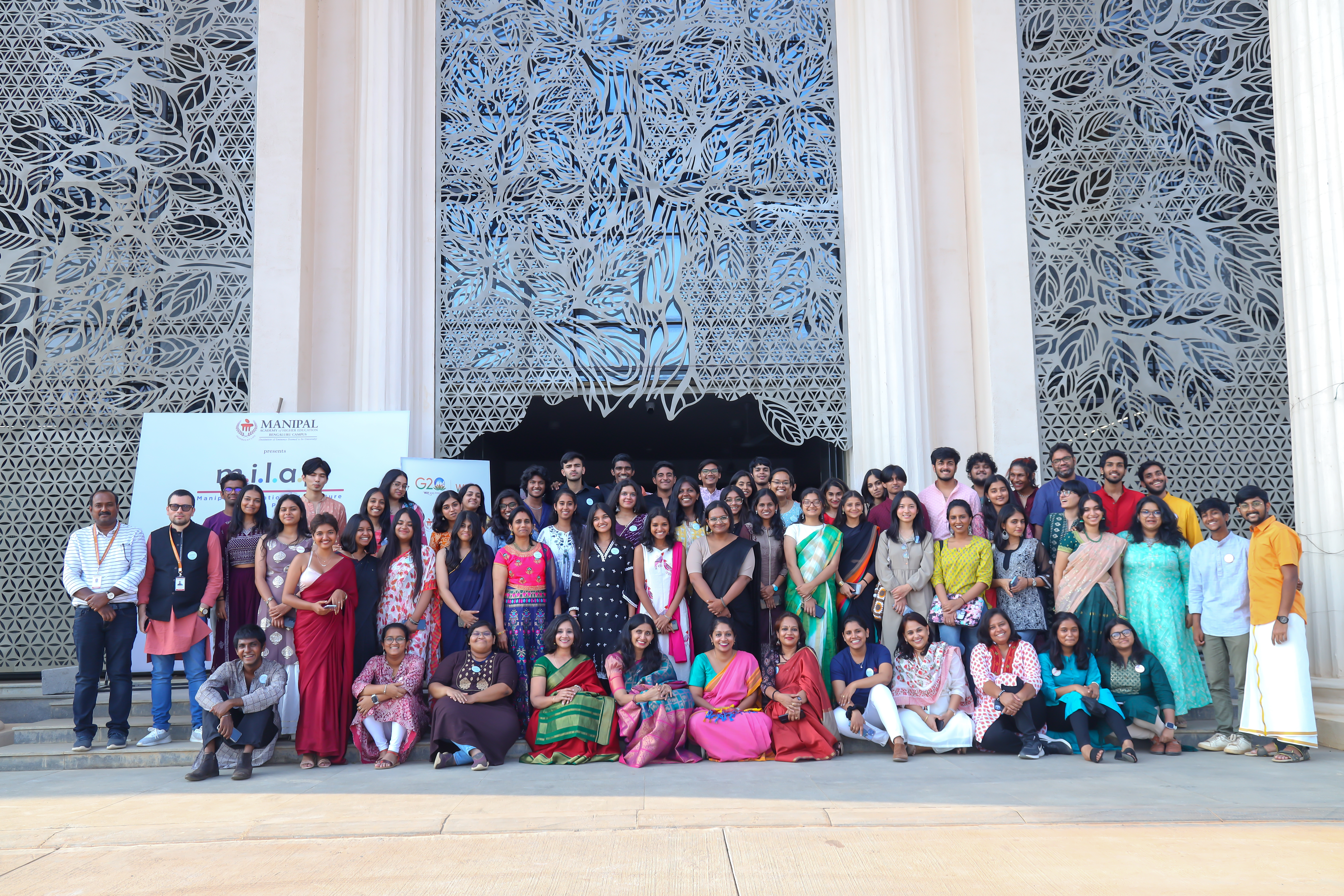Start Date: April 06, 2023
End Date: April 08, 2023
“The historical process of the formation of nations –the nation as a political institution—has been very different from the historical process of the formation of the city as a sociological institution”, said Prof. Ganesh N Devy during the inauguration of the three-day annual literary festival Manipal International Literature and Art Platform (m.i.l.a.p) here today.
“The nation is an expression of the human race to bring many under a single and well-defined space. The city, on the other hand, is the expression of the desire to bring one into many chronological orders” he added delivering the keynote address for the theme – In Conversation with Bengaluru: Spaces, Intersections, Transitions, and Imaginaries” (SITI) on the occasion. Prof. Ganesh. N Devy, a renowned literary critic, scholar, and recipient of Padma Shri Award, shed light on the perceived idea of the city and accommodating multiplicity of identities. He further spoke about how the idea of a “city” is older than and outlasts the idea of a “nation”.
Prof. Madhu Veeraraghavan, Pro Vice Chancellor of Manipal Academy of Higher Education, Bengaluru campus, in his Presidential address, remarked that Universities like Cities can grow only by accommodation of diversities and ideas. Universities stand the test of time only if it allows for multitude of voices heard, he added.
On this occasion, two books published by Manipal University Press (MUP) were released - Momo by Micheal Ende, translated by Jayashree Kasaravalli and Malekaadina Kathegalu - Stories of the Rainforest by Malvika Tewari.
Post the inaugural ceremony, various venues heralded the start of m.i.l.a.p with masterclasses, panel discussions, film screenings and workshops. Sharachchandra Lele brought the idea of climate change and cities closer, and spoke vibrantly of the contribution a city dweller makes to the changing landscapes of climate. In the panel discussion, “ Fidelity and Freedom,” the panelists spoke about the politics of language and translation. Meanwhile, Prithvi Konanur, the acclaimed director of Pinkeeli screened his 2022 movie Hadinelentu which was followed by an interactive masterclass. The first day of m.i.l.a.p. concluded with the performance of Desdemona Roopakam by Nalanda Arts Studio.
“We need to introduce visual education right from primary school if we want to build a culture of art appreciation” said Girish Kasaravalli during the Masterclass on Day two. He engaged in discussion with the film enthusiasts about how films play a critical role in exploring the socio-economic and cultural aspects and how the vision of the film maker is above the plot or actors. One must learn to read cinema beyond the plot and that necessitates visual education”, he added.
The Day witnessed a series of panel discussion - Ooru Suddi: Journalism of, for, by the City with veteran journalists Rasheed Kappan and Meera K discussing various issues related to journalism and its response to city matters. Panels discussions on Queer Bodies: Poetry and Politics; City Inscapes: A Conversation; and Imaging Cityscapes: A Conversation with Artists from Bengaluru initiated key conversations on multiple facets of the city spaces. Creative writing workshop – Kathaakammata by Vasudendra engaged budding writers on the art of storytelling through various activities. Day two culminated with the stage performance of the Play - The Caretaker, by Harold Pinter. The play had a magnified lens of understanding the humaneness around the three men, at the same time confronting their realities while engaging politically on the refugee crisis, hierarchical structures, mental health, and politics of space of 1960.
The final day of milap started with the performance based session on - Dissemination of Bhakti Arts in Southern India: Past and Present by H. S. Shivaprakash and Dharmanna Mahaanth. This was one of the finest panels of all. The integration of performance into the discussion made it a holistic experience. This was followed by a Masterclass on Urban Life of Caste by Prof.Janaki Nair who gave scholarly insights into the urban life laced by caste through a historical perspective.
The panel on - Spatial, Social, and Economic Inclusion: Migrants in the City with Romal Singh, Prof.Madhu Veeraraghavan and Kalpana, initiated conversation around the question ‘who is a native/migrant? what does it mean to be a migrant in Bengaluru?”. This penultimate session - Weaving Words: Poetry and Performance and Slam Poetry Poets gave platform to young poets to recite in multiple languages. The three-day event concluded with Talamaddale - Padmavathi Kaalaga by Yaksha Durga Mahila Kala Balaga. The performance articulated a distinctly female experience rather than just imitating the male tradition of Yakshagana.
The three-day festival was attended by literary and art enthusiasts. It was one of the most intellectually stimulating festivals that the city has witnessed in recent times.




